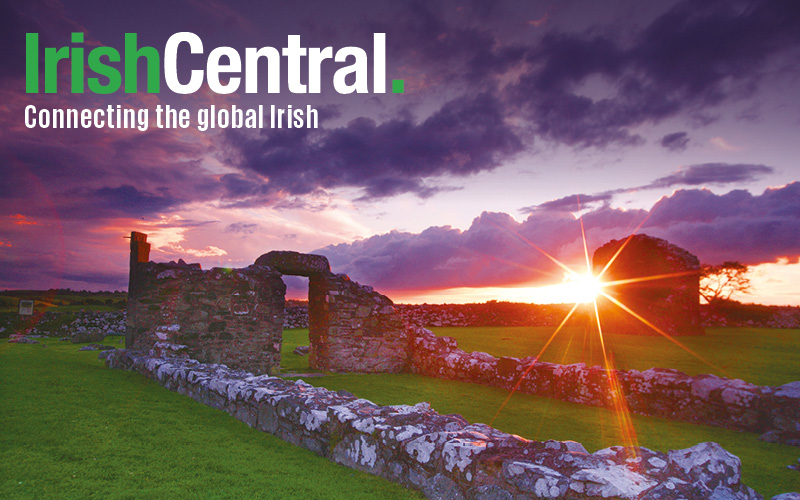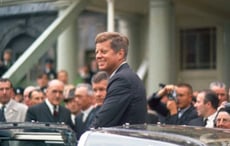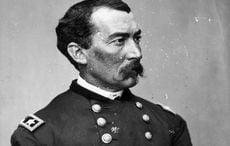Croke Park, Dublin: Hurling was invented in the 6th century, perhaps well before that some scholars believe. It is doubtful that at any time since there has been a finer match than that between Kilkenny and Tipperary in Croke Park in the 2016 All Ireland Final – Ireland's Hurling Super Bowl.
On the way to the stadium the black and amber of Kilkenny was far less evident than the blue and gold of Tipperary. Tipp fans chanted, sang and hoped – some even prayed. Hunger will do that to a team and its supporters.
The recently renovated stadium and pitch looked its sparkling best, and the Artane Band haven’t grown an inch since I first saw them over 35 years ago.
A brilliant late summer sun shone.
Fortune and weather favored the brave.
President Michael D. Higgins came out to welcome both sides, then the crowd of 82,500 stood in silence as the national anthem played. You could have heard a pin drop and then a massive roar reverberated around every corner of the stadium.
Game on!
Tipperary are All-Ireland Champions 2016! #AllIrelandFinal pic.twitter.com/2Pum4JldMk
— Irish Examiner (@irishexaminer) September 4, 2016
At stake was the Liam McCarthy Cup, commemorating an Englishman, son of Irish emigrant parents, who established the GAA in Britain. But much more than silverware was on the line.
Kilkenny and Tipperary are two bordering countries who don't much like each other when it comes to hurling. Their meetings are like the Clash of the Titans.
They are the aristocrats of the game, first and second in terms of All Irelands won. When they clash it is a warrior’s war between two proud and fierce traditions stretching back well over 100 years.
Amazingly, the players are unpaid except for expenses. All hold down regular jobs or are students. The honor of playing for your county surpasses all, which is why the GAA is one of the most extraordinary forces in Irish life, one that has never wilted when other institutions failed.
Kilkenny has had the Indian sign on Tipperary in recent years, bullying them into defeat with displays of macho power that have stamped them as one of the best teams of all time. Their coach Brian Cody is the Knute Rockne of his era.
Read more: What hurling means to its players around the world (VIDEO)
For Tipp, it was now or never. Kilkenny had humiliated them so often going back to 2010, which was Tipp’s last win, that there were fears of an insurmountable psychological barrier.
As the ball was thrown in there was more than pride at stake, there was the honor of the county and the whole country looked on as both teams tore into each other with utter intensity.
As the game settled the Tipp forwards had the legs of the Kilkenny defense but shot some dreadful wides. The teams traded points most of that first half and Tipp led by two at halftime.
Kilkenny came roaring out at the start of the second half as Kilkenny always seems to do. They grabbed a goal and suddenly the Tipperary confidence wavered and seemed unsteady. This was surely not another Kilkenny charge leading to victory?
#Tipp lead at half time of the #AllIrelandFinal Tipp 0-14 KK 0-12https://t.co/8HxnzM2Ol6 #TippvKK #hurling pic.twitter.com/4Ms9NB3tfT
— RTÉ (@rte) September 4, 2016
Kilkenny was now ahead, but the Tipp response was ferocious, shooting point after point from impossible angles as if guided by radar before “Bubbles” O’Dwyer netted a crucial goal.
Try though they might, Kilkenny could not get back into the game and Tipp ran out deserving winners by nine points, the heaviest defeat for Kilkenny in many years.
The scene afterwards were euphoric, as if a great war had been won.
Generous in defeat, Brian Cody accepted they were beaten by a better team.
But they were winners too on a wonderful day which evoked all that was best about the Irish and their passions.
Twice this year I have been deeply moved by Irish events: the first the 1916 celebration on Easter Sunday and now the hurling final between Kilkenny and Tipperary.
Ironically, in the 1916 final played in 1917 because of the post-Rising crackdown, Tipperary also defeated Kilkenny. On the way to the game the Tipp players stopped and prayed at the General Post Office, site of the insurrection.
Fast forward a hundred years and imagine any of those 1916 leaders in attendance at Croke Park on Sunday. They would be well pleased at what they had brought about.




Comments